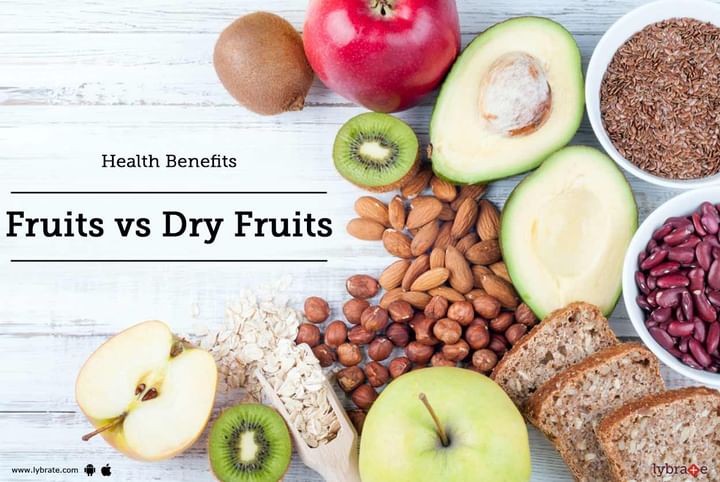Health Benefits - Fruits vs Dry Fruits
It is said that dehydrated fruits offer same health benefits as that of fresh fruits, but differ slightly in mineral and vitamin content. Both fresh and dried fruits will provide you with fiber and antioxidants, which are beneficial for your health; however dried fruits usually lose a small percentage of their vitamins during the process of dehydration.
When you compare fresh and dried fruits, it’s great to make use of the standard serving sizes, which are 1 cup of fresh fruit and ¼ cup of dried fruit.
But when fruits lose their water content and eventually volume during the drying process, their sugar, calorie and nutrient content become concentrated. So when you consume a handful of dried fruits, there is an in-take of more calories than you would if you consumed that same quantity of fresh fruits.
Besides giving you a variety in taste and health benefits, both fresh fruits and dehydrated fruits have their own significance.
For instance, whereas dry fruits can offer you portability and a longer shelf life; fresh fruit as opposed to dry fruits contain higher amount of minerals and hence is a more nutritious choice than dried fruits.
If you are keeping a close watch on your weight, then dried fruits should not be eaten much as they contain considerably more calories in each serving than the fresh fruits. Dried fruits that contain sugar additives are high in calorie content, but the ones with low calorie content offer numerous health rewards:
- Antioxidants
There are some dried fruits which are a rich source of antioxidants, the Journal of the American College of Nutrition revealed. For instance, Phenol an antioxidant-type is found more in dried fruits such as figs and dates than in fresh fruits.
- High Fiber
Dried fruits are usually high in fiber content than the equal-sized serving of the fresh fruits. Fiber helps in running our digestive system smoothly and prevents obesity as well as cancer and heart disease.



+1.svg)
